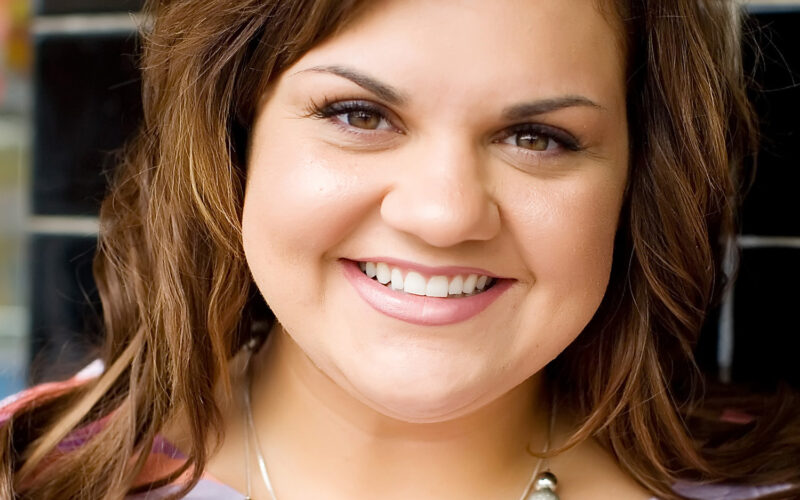Abby Johnson, a former director of a Planned Parenthood clinic, has personal and professional experience with hormonal contraception.
She is also author of Unplanned: The Dramatic True Story of a Former Planned Parenthood Leader’s Eye-Opening Journey across the Life Line and founder of And Then There Were None, an organization that assists abortion-clinic workers seeking to transition out of the industry. In anticipation of her keynote at Natural Womanhood’s Gala on November 8 in San Antonio, Natural Womanhood enjoyed a rare conversation with Johnson on her experience with hormonal contraception and how she came to view it as incompatible with women’s health.
Mary Rose Somarriba: From your book Unplanned, I recall you explaining part of your reason for starting work at Planned Parenthood was your view that increasing distribution of contraception would reduce abortions. What shaped your view of contraception as a societal good?
Abby Johnson: I grew up in a home where contraception was seen as acceptable for married couples. We’d see a family with a lot of kids and my mom would say “oh, they’d need birth control.” I knew that it was something my parents had used; in fact, my mom had been on contraception when she conceived me.
I was put on contraceptives very early in my life, and took them for 14 years or so. It was just normal. It was just a normal part of women’s health care: you get married, you get on the Pill. If you are not married and are considering sex, you get on the Pill. So when it came to working for Planned Parenthood, that was one of the things I thought that we were doing that was really good—providing this preventive care; let’s reduce abortions, let’s increase birth control.
Also, in the world of Planned Parenthood, all sex becomes normal. If a 12-year-old was considering having sex, that was fine; so you’d provide her with birth control when she comes in. If she was 11, you’d prescribe birth control. It just became part of what I believed was the good of what we were doing. Even after I left the clinic for anti-abortion reasons, I remember sitting on the floor of the office for the Coalition for Life, and saying “I don’t understand how you guys would be against contraception. You say you’re against abortion, how in the world will you reduce abortion without contraception?”
MRS: What are the latest findings; how does contraception use correlate with abortion rates?
AJ: You can find different studies that say different things. One in Colorado said you give women contraception and abortion rates go down; other studies say that’s not true. What we do know for sure, according to Guttmacher themselves, Planned Parenthood’s own research arm, is that 54% of women who are having abortions are using contraception at the time when they get pregnant. So the idea that contraception is working for women and that it’s preventing abortion is not true. If it were, that number would not be 54%.
And I think, if a woman is willing to take synthetic hormones in her body, knowing that these medications could potentially give them heart disease, stroke, cancer—the information’s out there now, pretty widespread—and if she is willing to risk those potentially life-threatening illnesses in order to simply not have a baby, then I don’t think it’s a big step then to say if that baby does come and they do get pregnant that they could then move toward abortion.
MRS: How did you develop an opposition to contraception?
AJ: I’d call it my journey through contraception to my opposition to contraception. I kept hearing people talk about the dangers of contraception, and I had seen them myself—we had women coming in to the Planned Parenthood clinic I worked saying, “I feel crazy,” “I feel depressed,” “I feel suicidal,” “I can’t even be around my boyfriend anymore; he’s making me crazy.” At my clinic, we had a patient with a perforated uterus because of an IUD; we had a 26-year-old girl with complications after receiving Depo Provera injection; we had women who had developed health risks. I wasn’t blind to the damage that contraception could cost. So I really started thinking about that—thinking, is there a better way for women? And, if so, what is it?
At the clinic, I had given out contraception for years, and only after leaving was I reading first time the connection to cancer, reading the facts on progestin-based methods. I started looking into the mechanisms of hormonal birth control and how it works. Looking at these thinking, I thought, wait a minute; these can’t be right for women.
Modifying our bodies to the point where we are potentially giving ourselves cancer in order to not have a baby is crazy to me. I was contraceptive-positive my whole life, so it took a while to realize this.
Then it got personal. After I got my Mirena IUD removed, I realized my IUD had made my body infertile, that the synthetic hormones had meant I had no progesterone. We were infertile for a year and a half. Thankfully with a NaproTechnology doctor, I was able to ultimately restore my progesterone levels for pregnancy, but it helped me understand. Side effects like these didn’t just happen to some women, once in a while. Now it was happening to me.
It hadn’t damaged just one woman; it had damaged me.
Also, because of previous Depo Provera usage, I was diagnosed with intracranial hypertension, a condition with chronic headaches for which I’ll have to be on medication for the rest of my life. So now two areas of my life that were affected by birth control—infertility and this physical health problem. And that made me mad. Nobody told me when I got my IUD, “FYI, you might not be able to get pregnant after this.” And hey after this depo shot, you may have cranial hypertension, and if you’re not medicated for that, you could go blind. No one had told me these things, and I had worked for Planned Parenthood. So I realized other women are going blindly in and doctors aren’t telling them, nurses were not telling them. I thought, there has to be something better than this.
Check out Part II of this interview with Abby, where she discusses how she learned about Natural Family Planning and how it changed her life.








I’m a practising Catholic. I’m not sexually active, but my doctor (a Hindu woman) has recommended thr Mirena IUD as a treatment for endometriosis and anemia. She says it will also reduce my risk of ovarian cancer. Is it OK to use an IUD if it isn’t for contraceptive purposes? Or are there too many risks?
Hi Lia! We recommend you visit our sister site, https://iudalert.com/ for more information on IUDs. It is worth noting that the Mirena is a hormonal IUD, and therefore carries many of the same risks as hormonal contraceptives and implants. We also recommend checking out our Endometriosis-related content, so that you can learn more about this condition and how to get real help, instead of band-aid solutions: https://naturalwomanhood.org/topic/cycle-dysfunctions/endometriosis/ Good luck!